- Home
- P. T. Deutermann
The Last Man Page 34
The Last Man Read online
Page 34
Then the slab did move, and he saw her hands scrabbling along the edge, trying to dislodge it. He put his back into it then, and between them they got the thing onto its edge and he was through and standing up in chest-deep water. The marble dropped back into the hole with a flat slap.
David looked at Judith, whose white face told the story. “I couldn’t hold it,” she sobbed. “The water came in everywhere.”
He glanced around the cave, which was now almost one-third full of water. It had risen past the bottom lines of writing on one wall. “Look,” he said, pointing his headlamp. “It’s going back down. I got the pipe into the big slab. The fill system should be pumping water into that cave and outside.”
She collapsed onto her knees in the water and put her face in her hands. He noticed how stuffy the air was in the cave and pushed the spare tank over.
“Here,” he said, switching over the regulator connection and pushing his mouthpiece into her face. “Breathe.”
She grabbed at the mouthpiece and took several deep breaths before he cautioned her to slow down. Then he took a couple of breaths himself. He watched her face. She was calming down, but the whites of her eyes were still showing.
“We’ll let the water go out onto the mountainside for as long as we can stand it in here,” he said. “Then I’ll go unplug the outlet pipe, and hopefully we’ll get an airspace up there by the slab. After that, it’s a matter of time before someone sees all that water.”
“Hopefully,” she murmured. “Always with the hopefully.”
She was trying to crack wise, but her voice gave her away. He needed to distract her. “Yeah, well, look,” he said. “We’re still alive, and this cave is still intact. We have some air now. Someone’s going to see all that water.”
“So now we what, just wait?”
“Yes. We just wait.” He shone his light over the writing on the wall. “You can actually read all this?”
She straightened and looked up at the script, her headlamp throwing a bobbing yellow circle on the wall. “I’ve read almost half of it,” she said. “It’s still terrible.”
“Where does it begin?” he asked, taking another hit on the spare tank.
“There,” she said, getting up and wading over toward the altar structure. The water was definitely receding, he thought. The parts of the writing that had been wetted were beginning to run down the wall.
“Here. It begins like this: I am Judah Sicarius, son of Joseph. I shall be the Last Man.”
* * *
Ellerstein finally found the colonel and his team up on the northernmost tip of the fortress. They had apparently just climbed back up from the terraces. The colonel was not surprised to see him.
“My people reported you had come up here, Professor,” he explained. His face looked even younger in the bright moonlight. Beyond them, over a thousand feet below, the Dead Sea glinted silver all the way across to the dark Jordanian hills. A night bird cried out in the darkness down on the Serpent Path. To their left stood the labyrinth of the palace storerooms, and beyond that, the cable-car tower contrasted dramatically with the two-thousand-year-old ruins. Seeing Ellerstein, the soldiers with the colonel took a break, lighting up cigarettes and enjoying the expansive view.
“So, Colonel: anything?”
“Not a damned thing, Professor. No Americans, no Russians, no Arabs or white-eyed Palestinian Islamicide bombers, as best I can tell. How about you—did you see anything?” The colonel was trying to hide his sarcasm, but he wasn’t succeeding very well.
“Nothing up here, no,” Ellerstein said, fumbling with his pipe, “but there are two Land Rovers parked out in the dark behind the hostelry. Those yours, Colonel?”
The colonel looked at him for a moment and then snapped an order to the radio operator. The man dropped his cigarette and made an urgent transmission. He listened for a reply and then shook his head at the colonel.
“Goddammit,” the colonel said. He turned to the sergeant. “Get somebody on that, right away. Find out whose they are.” The radio operator got busy, and the colonel found his own cigarettes. “The hostelry is supposed to be covered by the regular coast road patrol,” he said. “They didn’t mention anything about any vehicles back there, but we’ve searched this whole place. There’s no one up here except us.”
“Did you search the cisterns?” Ellerstein asked, remembering Skuratov’s concern.
“The cisterns? You mean along the southern rim?”
“No, the main cisterns,” Ellerstein said. “The big ones you get to by walking back along the water channels from the middle terrace.”
The colonel was about to answer when one of his men called him urgently. He was standing up on the outer casemate wall and pointing down at something on the eastern slope.
“What, dammit?” the colonel snapped, his lighter poised halfway to his cigarette.
“Water, sir. There’s water coming out of the mountain. Right down there. Lots of it.”
Shapiro looked at Ellerstein, and then they both headed for the eastern gate, along with the troops. One of the soldiers actually trotted down the Serpent Path to where a black stream was gushing out of the ground. Ellerstein and the colonel followed him. The water was coming from a small cave entrance. He followed Shapiro and the soldiers into the cave, climbing past the remains of a stinking pile of bat-soiled sand that was being washed out of the cave entrance as they crawled over it.
Each of the soldiers had a flashlight, and they were pointing them everywhere in the cave. The floor was flooded to a depth of a couple of feet. The water seemed to be coming from a spring at the back of the cave in a rhythmic upwelling. Ellerstein tried to identify the smell in the cave, and finally did.
“That’s warm water,” he exclaimed. He put a finger into the water and confirmed it by tasting a drop.
“No way,” Shapiro said, but then he, too, tasted a drop, as did a couple of the soldiers. “Okay, it’s warm,” Shapiro said. “So how the hell is a spring in the mountain generating warm water a thousand feet up?”
Ellerstein shook his head and asked one of the soldiers for his flashlight. He sloshed over to where the water was rising. Shining the light down into the swirling water, he could just make out the edge of a large slab through a cloud of turbid sand. What looked like the end of a staging pipe was jammed between the edge of the slab and the rim of the hole. When he saw the iron ring, he called Shapiro.
“Man-made,” he said. “There’s a lifting ring. And look at that pipe. Fresh scratches. Someone is under there, I think.”
“In what?” Shapiro asked. “Under there, inside what? A cistern?”
“I don’t know,” Ellerstein said, “but this is new. The presence of a cistern here, I mean. We need to open that hole.”
Shapiro straightened up, hesitated, and ordered the sergeant to get the slab out of the hole. The sergeant examined the iron ring and then had three men pull the end of the staging pipe through the crack. They all felt the slab thump back down into its hole once the pipe pulled clear, stopping the flow of water. Then they put the pipe through the iron ring. Three men got on each end, and they lifted the slab aside, revealing the rectangular hole. Water welled up again.
They shone their lights down into the hole, just in time to see a scuba air tank rising like a ghost right toward them before it popped up into their faces. Other bits of material were visible circling in the water below the opening. The sergeant hauled the tank up into the cave and read out the name of the dive shop in Yafo. When Ellerstein heard that, he signaled Shapiro and backed out of the cave.
“What?” the colonel asked.
“I think I know who’s down there, in that cistern,” Ellerstein said. “Have you found out who those vehicles belong to down behind the hostelry?”
“My people are checking on that,” Shapiro said, visibly angry now. “Now please, tell me what the hell you’re doing here.”
“Colonel Shapiro, I suggest you station some people by that hole in there,
” Ellerstein said, “and then go find Colonel Skuratov and his people. I’ll bet they’re up in the fortress by now, what with all this commotion.”
“Skuratov? What do you know about him? Goddammit, Professor—”
“Please, Colonel Shapiro. Go find Skuratov. Take him to the terraces, away from this side, away from as many watching eyes as possible. I’ll wait here for whoever’s in the cistern to surface. Then we’ll sort it all out.”
“We?! Who is ‘we’?”
Ellerstein looked down at his shoes but said nothing.
“Look—I need to report all this,” Shapiro said, pointing at the slab opening and the debris that had come out of the hole.
“Yes, of course,” Ellerstein said, “but not just yet, okay? Let’s see who comes out of that water, and what they were doing down there.”
“But my instructions—to report immediately—”
“They will ask a thousand questions, yes? Why not wait until you have some answers, hunh? Meanwhile, Colonel, I really need a phone circuit, or even a radio, to Jerusalem. I need to call Israel Gulder in the prime minister’s office.”
Shapiro started to object again, but then the bit about the PM’s office penetrated.
“Who the hell are you, Professor?” he asked.
“Nobody famous, Colonel—but you will be if I don’t get that circuit up. Now go find Skuratov. He’s up there. And, Colonel? Keep some soldiers with you.”
31
Judith had almost finished reading Judah’s last testament when she stopped, her finger poised above the lampblack symbols.
“What?” David asked. The water had receded entirely from the cave, but the air was getting worse. They would have to get out of here soon.
She sat back down on the floor of the cave and frowned up at the writing. “There’s something he’s talking about besides the last night. He makes reference to some event, some disturbance that happened forty years before the siege. In Jerusalem. It concerns his brother.”
“What kind of disturbance?”
She shook her head. “It’s difficult, without time to really study it. There are many possible interpretations of the words. Like the word ‘brother’—it can mean his actual brother or brother in arms, like that.” She studied the writing some more. “It’s as if—oh, my God.”
“What? What?”
She pressed the back of her hand against her lips and glanced over at the pile of rags and bones. “My God,” she whispered again, “I think I know who this is. Listen.”
David was baffled, but she was obviously overwhelmed by what she thought she’d discovered.
“Listen to what he writes at the very end, down here at the bottom. Damn the saltwater—this stuff is disappearing in front of my eyes. He says: I regret, oh Lord, that we lost this war. It was madness to start it, that we all knew, those of us who had been in the hills for those many years. And now, desecration and abomination beyond words, or speaking. Something like that. Then it goes on: So be it. This could not have happened if it was not your will. I was just one of your instruments, as I now remain. Then there’s more, about his brother. It’s, well, an apology. To or about his brother, I think.”
“For what?”
“First he says he’s not apologizing for betraying him to the Romans. As the long-lost, disgraced, and exiled brother, he, Judah, had been the only one his brother could trust to do such a thing, because the priests and even the Romans would absolutely believe it.” She stopped again, working through the translation. “He is apologizing for scorning his brother, who had preached the other course, the way of love and reconciliation, just the opposite of the path the Jews had ultimately chosen, the way of war.”
She stopped again, her lips moving silently, while David watched. She was totally focused. Then she put both hands up to her cheeks while she read aloud. “He puts no faith in all the talk of prophecies, the Messiah stories. He says there were Messiahs every year, before and after his brother. All of them lunatics. But there had been something innately good and—I can’t make this out—innocent? about his brother. He, Judah, should never have scorned him, as a child or afterward. That was his only sin, he says. All of the things told about him later were lies, but for that, for scorning the beloved son, he repents from the bottom of his heart.”
David felt the hairs rising on the back of his head. “Messiah? Beloved son?”
“Att-haw baree kha-beeba. Revered son, or beloved son. I’m transliterating here, David. It will take a crowd of Aramaic experts to get it precisely right.”
“Even so,” he whispered. She nodded slowly, gazing at the words.
They both stared in wonder at the writing on the wall. Then she looked at him, her face a pale oval beneath the yellow headlamp. “Say the name, David,” she whispered. “Say it out loud.”
“Whose? Judah’s?”
“No, the whole name: Judah Sicarius. Say it out loud, three times.”
David said it, and the third time he understood: Judah Sicarius.
Judas Iscariot.
“Holy shit,” he whispered. “This was Judas?” Then he looked at the plain bronze bowl. “Oh, my God, Judith—that bowl. Could that be what I think it is?”
She shook her head slowly. “I don’t know. He says that if the Romans find the cave, they’ll leave the bowl, and thereby miss the real treasure here.”
“He must have been an old man—this was forty years after all that.”
“He says he had three score years—that’s roughly sixty years old. He would have been twentysomething at the time of the crucifixion. That makes sense—they were all young men.”
“His brother. Does he name him?”
“No, and it could be brother in the sense of ‘every man is my brother.’”
He looked at the bronze bowl again. It’s just a bowl, he thought. Or was it? “I’m almost afraid to touch it,” he said.
Then they both felt a thump of pressure in the air, as if something had squeezed the entire cistern outside.
“Something’s happened,” David said, almost glad for the distraction. “We’d better get out of here. Go see if we have an airspace up there.”
“What if we don’t?”
“All the water has withdrawn from in here. It had to go somewhere. There were grooves in the side of that big slab, which is probably how this place filled up over the centuries. If the water’s down, there has to be air. C’mon.”
Five minutes later they rose toward the top of the cave, buddy-breathing on the single remaining tank. When they bumped against the ceiling of the cavern, David released an air bubble from his mouth, hoping almost against hope that it would move away from them.
It did. Perversely, it went behind them. They followed it, saw lights, and a moment later popped out into the space where the slab had been. Four large soldiers and Professor Ellerstein were standing there, looking down at them.
“Shalom,” he intoned solemnly, reaching for his pipe.
* * *
The soldiers brought them up into the fortress through the Serpent Path gate. They stopped while a sergeant held a brief consultation on his radio. While he did, Ellerstein took them aside. “Mr. Hall,” he said, his expression anything but friendly. “Communing with the spirits again?”
“You have no idea,” David said, wondering what was going to happen next. Both he and Judith were itching vigorously. He was still shaken by that wine bowl. Ellerstein was about to reply when Judith grabbed his arm, pulled him farther out of earshot of the soldiers, and spoke to him in rapid-fire Hebrew for a few minutes. David couldn’t follow a word, of course, but he saw the expression on Ellerstein’s face. She’s telling him what’s down there, he thought.
When she was finished, Ellerstein walked slowly back over to where David and the soldiers were waiting. Judith folded her arms around her chest and stood staring out over the Dead Sea.
“I don’t know what to say now, Mr. Hall,” Ellerstein said. “It seems you have made some amazing discover
ies here. Despite all the deception.”
“Did she tell you about finding her husband’s body?”
“Yes, she did. She believes he was murdered, probably by the same person who closed that slab on you two.”
“And the pipes? She tell you about the pipes?”
“No. What about pipes, Mr. Hall?”
David hesitated. Ellerstein was asking a question to which he sounded like he might already know the answer. He described the pipes and the cylinders. Ellerstein gave him an odd look when he mentioned them. “Whoever’s been using this cistern did not know about that cave,” David concluded, “but they sure as hell knew all about the cistern.”
Judith came back over to where they were standing. It was light now, with sunrise imminent. A cool breeze had begun to flow up over the ramparts.
“Skuratov,” she said. “He’s here, isn’t he?”
Ellerstein nodded.
“Take me to him,” she commanded.
“Judith, are you very sure—”
“I am very sure, Yossi. He locked us in the cave, didn’t he? He or his people. Now, if you please.”
Ellerstein hesitated and then spoke to the sergeant, who made another radio call. Then they were escorted up to the north end of the fortress, where they were met by Lieutenant Colonel Shapiro and more soldiers. Shapiro and Ellerstein talked for a moment in Hebrew, and then the colonel took them down to the middle terrace, where they found Skuratov sitting by himself. In the soft light of dawn, his face was haggard, but his eyes were alert and angry when he saw Judith and David. He was perched on a marble bench fragment just inside the waist-high balustrade, his back to the stupendous view overlooking the sheer palisade that dropped down into the darkness.

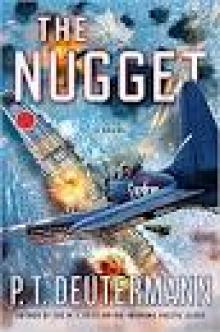 The Nugget
The Nugget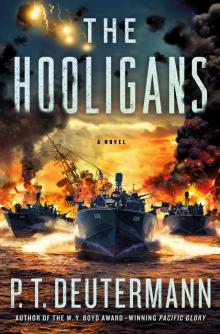 The Hooligans
The Hooligans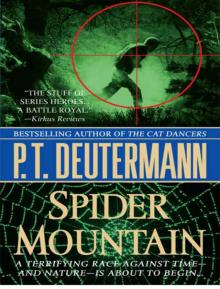 SPIDER MOUNTAIN
SPIDER MOUNTAIN![Cold Frame [retail] Read online](http://i1.bookreadfree.com/i/03/19/cold_frame_retail_preview.jpg) Cold Frame [retail]
Cold Frame [retail] Sweepers
Sweepers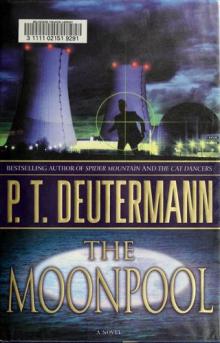 Cam - 03 - The Moonpool
Cam - 03 - The Moonpool Trial by Fire
Trial by Fire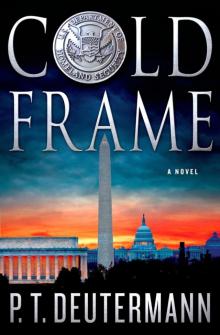 Cold Frame
Cold Frame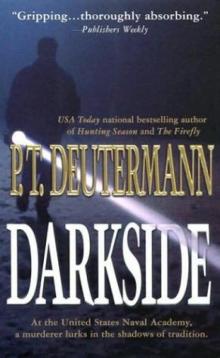 Darkside
Darkside Cam - 04 - Nightwalkers
Cam - 04 - Nightwalkers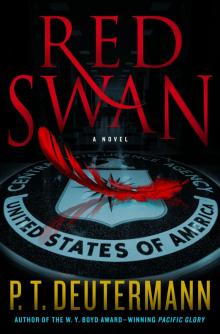 Red Swan
Red Swan The Commodore
The Commodore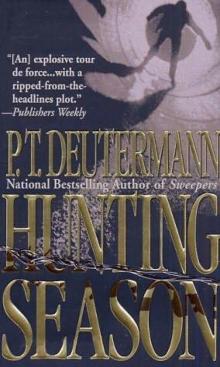 Hunting Season
Hunting Season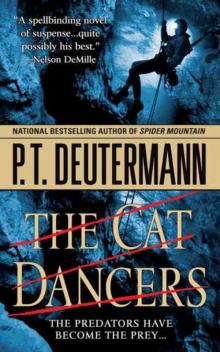 The Cat Dancers
The Cat Dancers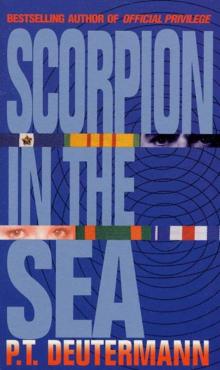 Scorpion in the Sea
Scorpion in the Sea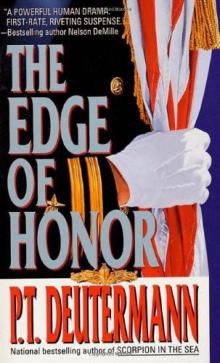 The Edge of Honor
The Edge of Honor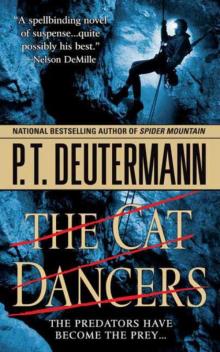 The Cat Dancers cr-1
The Cat Dancers cr-1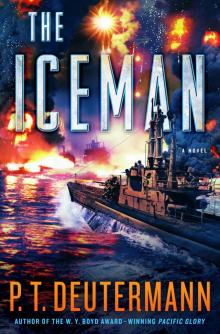 The Iceman
The Iceman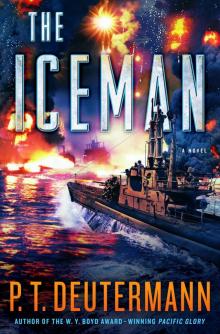 The Iceman_A Novel
The Iceman_A Novel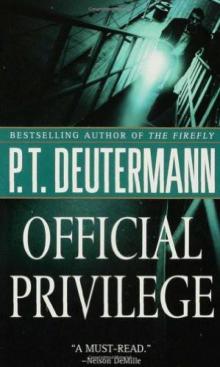 Official Privilege
Official Privilege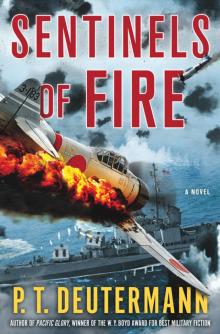 Sentinels of Fire
Sentinels of Fire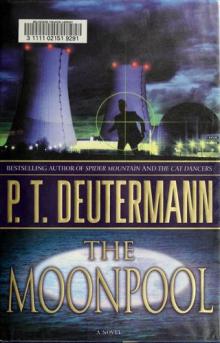 The Moonpool cr-3
The Moonpool cr-3 Nightwalkers cr-4
Nightwalkers cr-4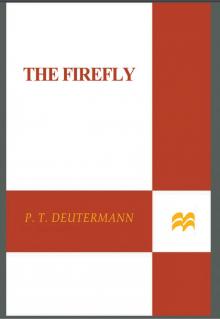 The Firefly
The Firefly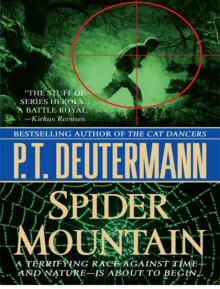 Spider mountain cr-2
Spider mountain cr-2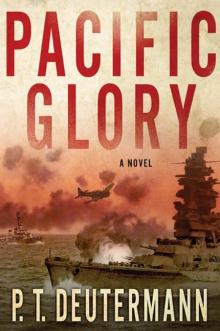 Pacific Glory
Pacific Glory The Last Man
The Last Man